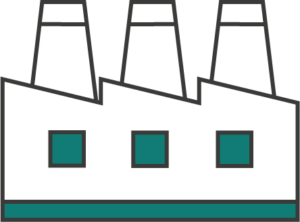Research
Aims & Objectives
The objectives of the SusAlgaeFuel project are focused on developing innovative and sustainable processes for producing microalgae-based sustainable aviation fuels (SAFs).
The project partners aim to innovate across multiple stages of the microalgae value chain, from cultivation to fuel production, to make algal SAFs more cost-competitive and sustainable.
The researchers also seek to create a synergistic relationship between anaerobic digestion by-products and microalgae cultivation, reducing costs and environmental impact.

Objective 1:
Enhance Microalgae Growth and Biomass Productivity
Investigate strategies to capture biogenic CO2 and recover nutrients from liquid digestate for microalgae cultivation.
Develop and optimise high-density cultivation strategies using oleaginous microalgae species.
Implement a novel membrane system for efficient CO2 delivery to the microalgae.
Integrate these systems to achieve high biomass productivity and lipid accumulation.
Objective 2:
Monitor and Manage Bacterial Contamination
Develop an in-line monitoring system using advanced spectroscopic methods and machine learning to detect bacterial contamination.
Create a selective UV irradiation system to reduce harmful bacteria and promote beneficial bacterial growth in microalgae cultures.

Objective 3:
Develop a Low-Energy Biorefinery
Optimise cell disruption techniques and solvent extraction processes to fractionate wet microalgae biomass into lipids, proteins, and biomass residue for biofuel production.

Objective 4:
Optimise Catalytic Conversion to Aviation Fuels
Develop catalytic pathways for converting microalgae biomass components into high-quality kerosene mixture.
Purify the resulting biofuels to meet aviation fuel standards.
Objective 5:
Assess Commercial Scalability and Environmental Impact
Conduct process simulations and a comprehensive Whole Life Cycle Analysis (WLCA) to assess the sustainability and scalability of the algae fuel production process.
Objective 6:
Pilot-Scale Demonstration
Build and operate a pilot-scale facility to demonstrate the scalability of the SusAlgaeFuel process, including CO2 capture, digestate treatment, and microalgal lipid production.
Objective 7:
Dissemination and Exploitation
Develop communication strategies to share project results with stakeholders, collaborate with other initiatives, manage intellectual property, and explore commercialization pathways.